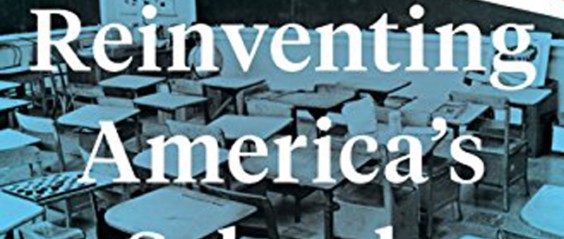Making News
The Wall Street Journal had three policy-focused pieces this week that are both outside of the paywall (as of 9/29) and good resources for framing current issues.
The first is a series of infographics showing how Americans view of work has changed since the 1970s. The data provides context into the changing workforce and the graphic presentation is particularly noteworthy.
The second is an in-depth look at contract workers in the U.S. The piece provides some useful data on how the contract workforce is changing and shows the ways that it affects workers at multiple points in the workforce cycles.
Provocatively entitled, “Rural America is the New ‘Inner City’,” the final article digs into multiple data points comparing rural America to other types of communities. One of the best, non-academic treatments we have seen.
Need to Know
East Carolina University is launching an initiative that will “harness the intellectual strengths and research facilities of ECU to improve the quality of life, health, education, and employment” for people in rural regions. The effort shows how the power of public university can be harnessed to address a variety of community and policy issues. The initiative’s launch site has an impressive list and description of all the different areas of the university that will be part of the initiative. We look forward to following the progress.
Contextual Healing
The Upshot blog looks at how the prescription drug industry uses coupons to sell name brands and undercut cost effectiveness in the marketplace. This is one of those underreported ways the U.S health system perpetuates inefficiencies and leads to higher costs.
For Your Consideration
The Aspen Institute and the Mercatus Center at George Mason University both released white papers this week looking at the statement of retirement in the U.S. The Aspen Institute piece pulls from the results of one of its leadership forums and looks at five challenges with the current system:
- The coverage gap. Millions of Americans have no easy way to save for retirement through work. While Forum participants disagreed about the exact size of the gap and how best to measure it, most agreed that it was a fundamental shortcoming of the current system.
- Widespread financial instability. Those struggling economically in retirement are usually those who struggled economically during their working life. Given that financial instability among American workers is rising, now reaching well into the middle class, the stress on the country’s retirement system will likely intensify going forward.
- Increases in longevity. Even as workers face economic headwinds, they generally are enjoying longer lifespans—and—thus longer retirements. This poses various challenges to the retirement system, including the growing and urgent need for “lifetime income” options.
- The evolving social contract. Some retirement-system risks that were shared in traditional pension models now rest solely on the shoulders of individuals. This risk shift has occurred in tandem with a decline in trust in institutions and elites, making attempts to reshape the social contract more difficult.
- Lack of political will. The challenges facing the American retirement system are subtle and slow developing, more chronic disease than headline-grabbing epidemic. This makes galvanizing action on the part of politicians all the more complicated.
The Mercatus Center piece challenges a commonly held assumption that families are undersaving. It “reviews a range of studies of the adequacy of household saving, comparing estimated dollar savings shortfalls with unfunded liabilities in Social Security, in federal employee and uniformed military pensions, and in state and local government retirement plans.” The report’s overarching point–that governments need to stay committed to funding retirement liabilities–is not novel, but the analysis of retiree savings provides useful context.
What we're reading
EVENT: Reinventing America’s Schools: A Conversation with David Osborne
Join New York Times bestselling author David Osborne for a conversation about his latest book, Reinventing America’s Schools: Creating a 21st Century Education System on Oct. 10th at 7:30 at the Hunt Library in Raleigh.... Read the rest
-
To Improve Teacher Training, States Try ‘Micro Credentials’
-
Political Campaigning May Be Mostly Pointless
-
Education Isn't the Key to a Good Income
-
Wraparound Services: the Next Phase of Education Reform
-
Imagine how great universities could be without all those human teachers
-
America Wasn’t Built for Humans


